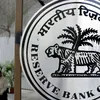NEFT to be available round the clock from December 2019, confirms RBI
According to the apex bank, this move is expected to revolutionise the retail payments system of the country, and further give a strong impetus in the growth of digital payments in the country.
After examining the need to make payment infrastructure NEFT (National Electronic Funds Transfer) available for a 24/7 basis, the apex bank in the country has agreed on making the digital payment system available round the clock, starting from December this year.

Credit: Shutterstock
In a statement, the Reserve Bank of India (RBI), said,
“Currently, the NEFT payment system operated by the Reserve Bank as a retail payment system is available for customers from 8.00 am to 7.00 pm on all working days of the week (except 2nd and 4th Saturdays of the month). As mentioned in the Payment System Vision 2021 document, the Reserve Bank will make available the NEFT system on a 24x7 basis from December 2019.”
According to the Central Bank, this move is expected to revolutionise the retail payments system of the country, and further give an impetus in the growth of digital payments in the country.
Recently, as a part of the vision document released in May, the apex bank lauded the ‘consistent growth in individual segments of retail electronic payment systems such as the National Electronic Funds Transfer (NEFT), Immediate Payment Service (IMPS) and card transactions’.
As a part of the vision, the RBI expects payments made through NEFT to increase by over 40 percent by 2021. It also expects the number of digital transactions to increase more than four times from 2069 crore (20.69 billion transactions) in December 2018 to 8707 crore (80.07 billion transactions) in December 2021.
Just last month, one of the largest commercial banks in the country, State Bank of India (SBI) waived off RTGS and NEFT charges for YONO, internet banking and mobile banking customers from July 1, 2019.
Additionally, the bank has already reduced NEFT and RTGS charges for customers transacting through branch network by 20 percent across all slabs.
(Edited by Dipti Nair)








